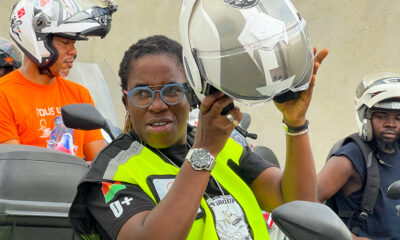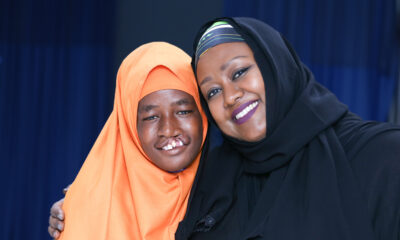Features
Crochet Saved Triza Apasi’s Life And Now She’s Using It to Uplift Girls in Kenya
Triza Apasi is changing lives in Kenya, one stitch at a time. Her crochet venture, Dynamite Hooks, is creating a safe space for girls to heal from trauma, find purpose, and champion sustainable fashion.
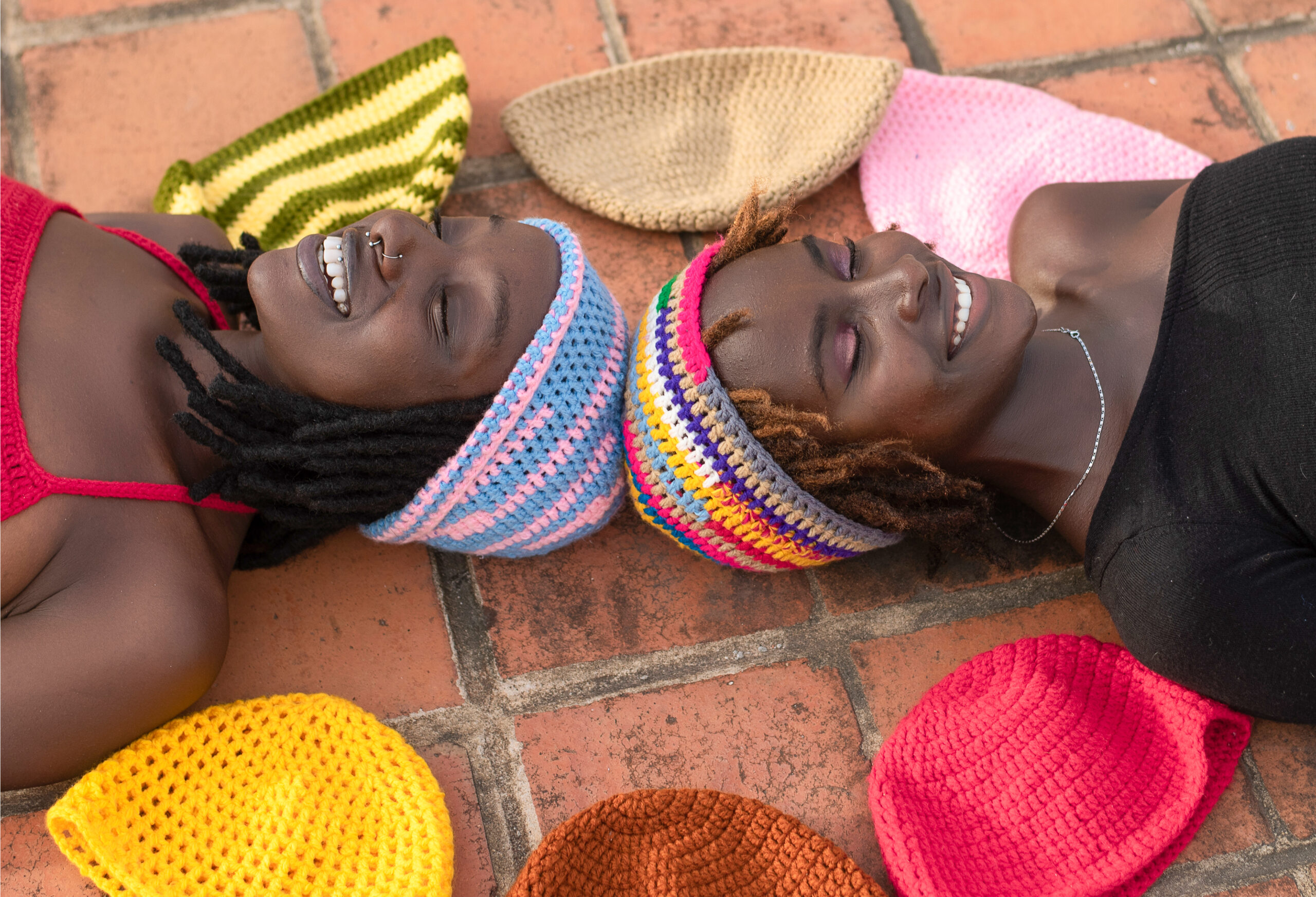
In 2022, 23-year-old Western Kenya-native, Triza Apasi was struggling with anxiety and drug addiction. A series of shattered friendships had left her emotionally vulnerable.
In her despair, she picked up a crochet hook and began weaving.
Her return to a craft that she had first discovered from watching YouTube videos during the COVID-19 lockdown in 2020 began as a pastime to cope with her emotional turmoil. It has since grown into something much larger: a route to healing, creativity, and community change.
She now manages Dynamite Hooks, a social venture that empowers young women, promotes sustainability and raises mental health awareness.
Across Africa, young women are increasingly turning to creative ventures to improve their lives and social transformation. According to the World Bank, women now own more than 30% of all small and medium-sized businesses (SMEs) in Sub-Saharan Africa, with key roles in industries such as fashion, agriculture, and technology. This increase in female entrepreneurship is changing the continent’s economic landscape, with women emerging as significant drivers of innovation and resilience.
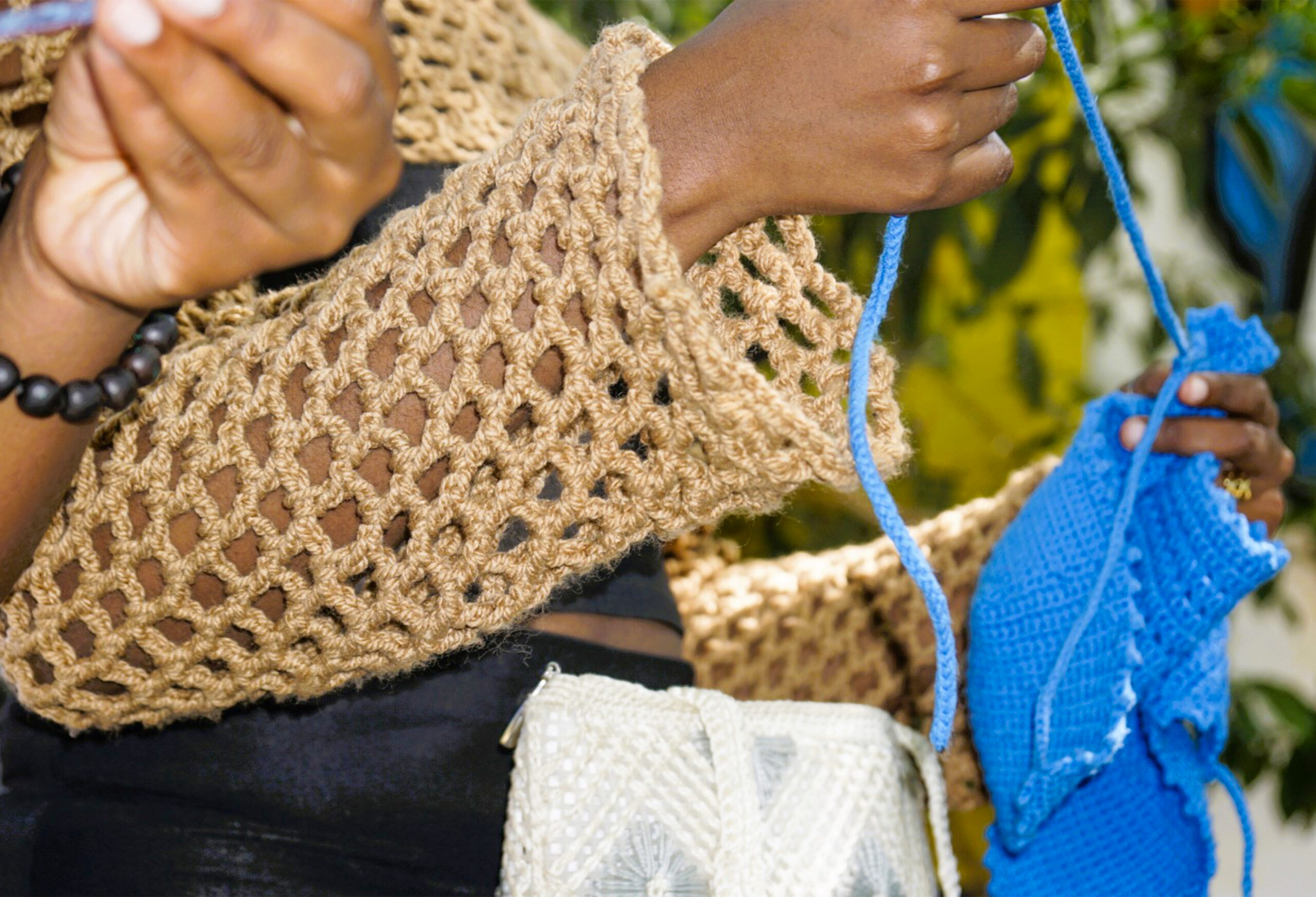
Triza’s mental distress began during her years at Pwani University in Kilifi where she was pursuing a bachelor’s degree in education in 2020. The freedom of campus life brought diversions. Crocheting fell by the wayside as she adjusted to academic life. By 2022, things had started to spiral. Her friendships were strained, her mental health was slipping and she turned to substance abuse to deal with her anxiety.
“I fell out of many friendships because of one issue or another. I fell into depression and anxiety and resorted to drug addiction,” she says.
Amidst her difficulties, a friend observed her and praised the bikini she was crocheting. Triza was taken aback by the comment because it was the first time someone had recognised the worth of what she was doing in quite some time.
That brief moment stayed with her. It compelled her to revisit the craft she had laid aside. This time, she went about it with purpose, researching techniques, interacting with other crocheters online, and discovering that crochet might provide both mental comfort and a source of income.
“This is something I can do if I put my mind to it,” she said.
Triza started crocheting again in early 2023. She discovered a modest antique shop in Kilifi town with a welcoming owner who allowed her to work on her creations. When she realised she needed support to take things to the next level, she contacted her friend Josephine Kamene, a more experienced crocheter. They worked together to improve their designs and expand their inventiveness.
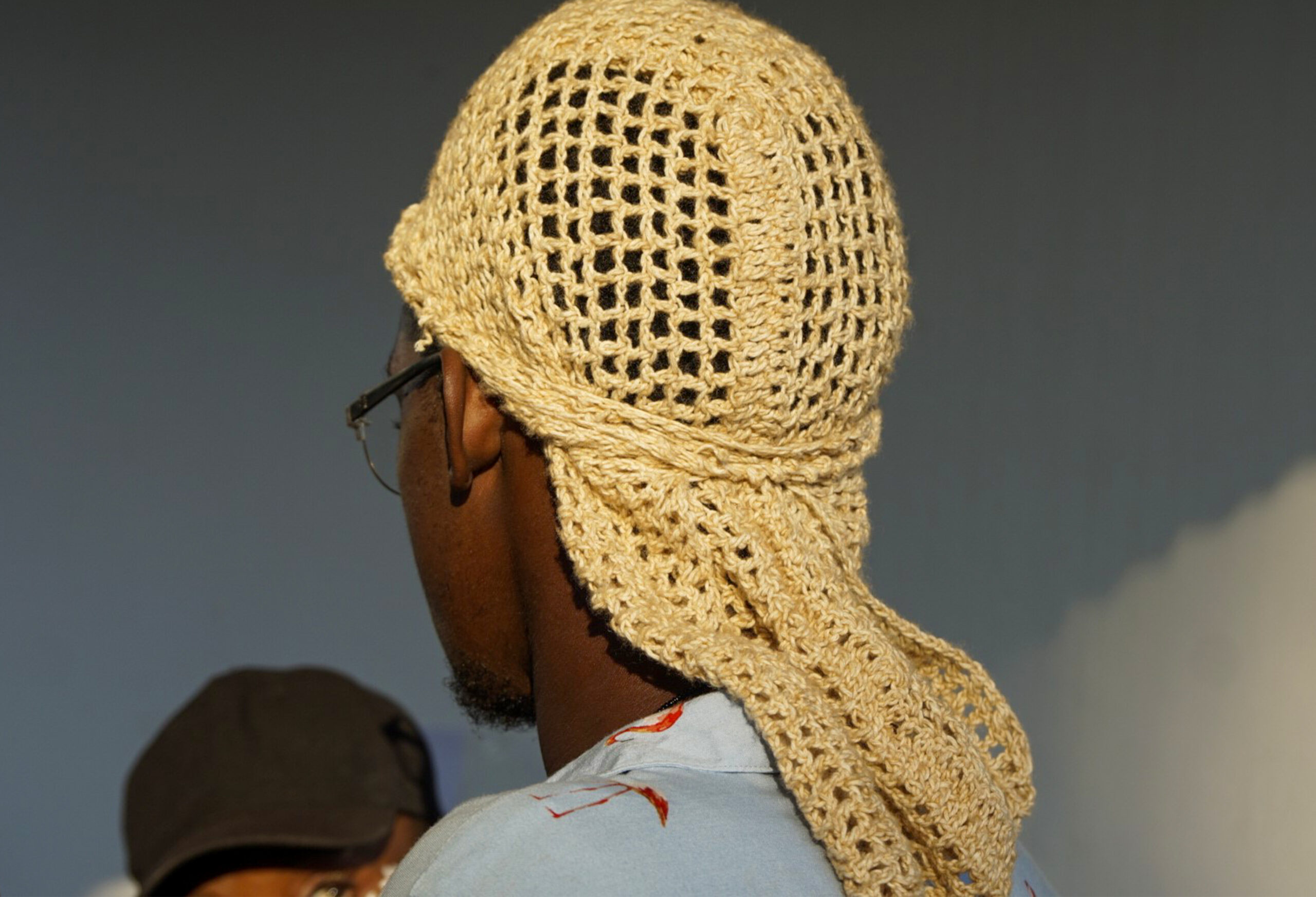
Their first big opportunity came in August 2023, when the shop owner asked them to create a poncho. Despite the material and time costs, they happily accepted the task.
“It was a big piece but with a simple stitch pattern, so it was just about playing with colours,” Triza says.
However, the event rapidly became a lesson. Triza had borrowed Ksh 5,000 for materials and intended to sell the poncho for twice the amount. However, the shop’s owner refused to pay more than Ksh 5,000. They were stuck with a poncho they couldn’t sell and a debt they couldn’t repay.
“She wanted to only pay Ksh 5,000, which meant that the work we did went unappreciated and no profits would be made for a job that took us a whole week to complete.”
The poncho remained unsold for nearly a year, serving as a daily reminder of the low value of crochet labour in the local market. Instead of quitting, Triza used the experience as fuel to build something bigger.
What began as a personal initiative has grown into Dynamite Hooks, a community of women who learn crochet, share their experiences, and encourage one another. The group focuses on creativity, emotional healing and making connections, especially for those navigating anxiety, depression, or past trauma.
Triza partnered with her friend Josephine, and the two began conducting training classes, selling handcrafted creations and partnering with local therapists to talk about mental health.
“Crochet is very addictive,” she says. “We would have hangouts, and this distracted me since I was more focused on crochet.”
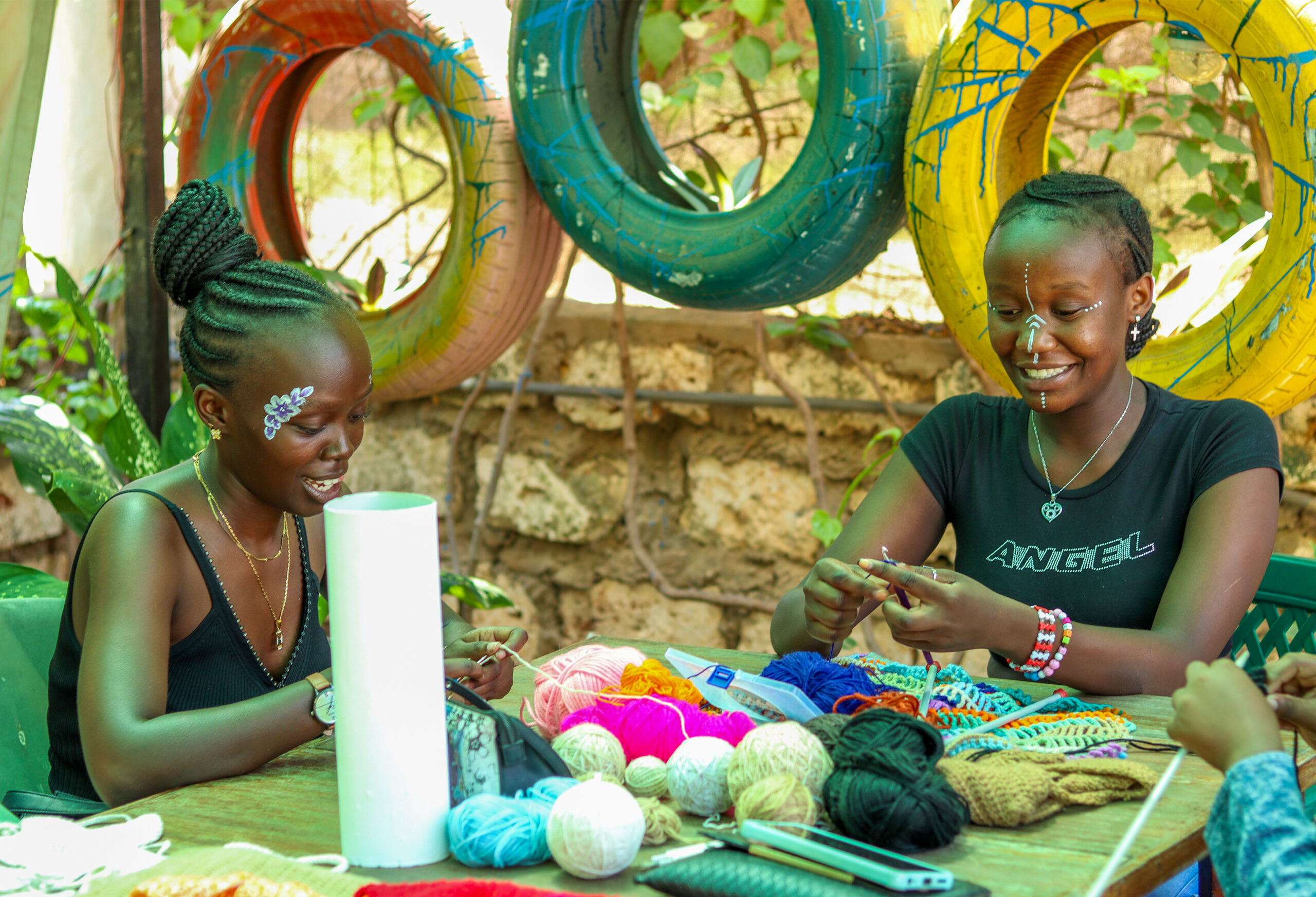
One of their most significant achievements occurred when a friend who had previously granted them money returned with additional support, allowing them to scale their work.
With this extra assistance, the team was able to invest in better materials, broaden their reach, and hone their skills. It also served as a powerful reminder that success was more than just financial gain; it was about building a community that believed in and supported one another’s advancement.
The group grew to draw more women, particularly those dealing with anxiety or despair. They developed a forum where people could chat openly while learning new skills by holding frequent meetings and sharing projects.
“We created a safe space for girls to share their stories, and we decided we will be creating art to heal hearts,” Triza explains.
In this safe space, young women can speak freely about their emotional wellbeing and use crochet as a tool for stress relief and peer support.
22-year-old Sumaya Msah Apondi, one of the first members, had always battled social anxiety and found it difficult to express herself. Crochet changed that.
“I always thought crochet was like rocket science,” she says. “But through engaging with Triza and the team, I’ve learned to crochet and make different patterns. Now, I just dig myself into it and in the process, I open up to others.”
Victorine Akoth, founder of House of Herbs and a women’s empowerment advocate, sees Dynamite Hooks as part of a larger movement in how African youngsters, particularly women, approach issue solving.
“Young women are creating communities where they can talk about what bothers them while also selling beautiful, eco-conscious work,” Akoth says. “They’re not just consuming from the world —they’re reusing what’s already there and turning it into something valuable.”
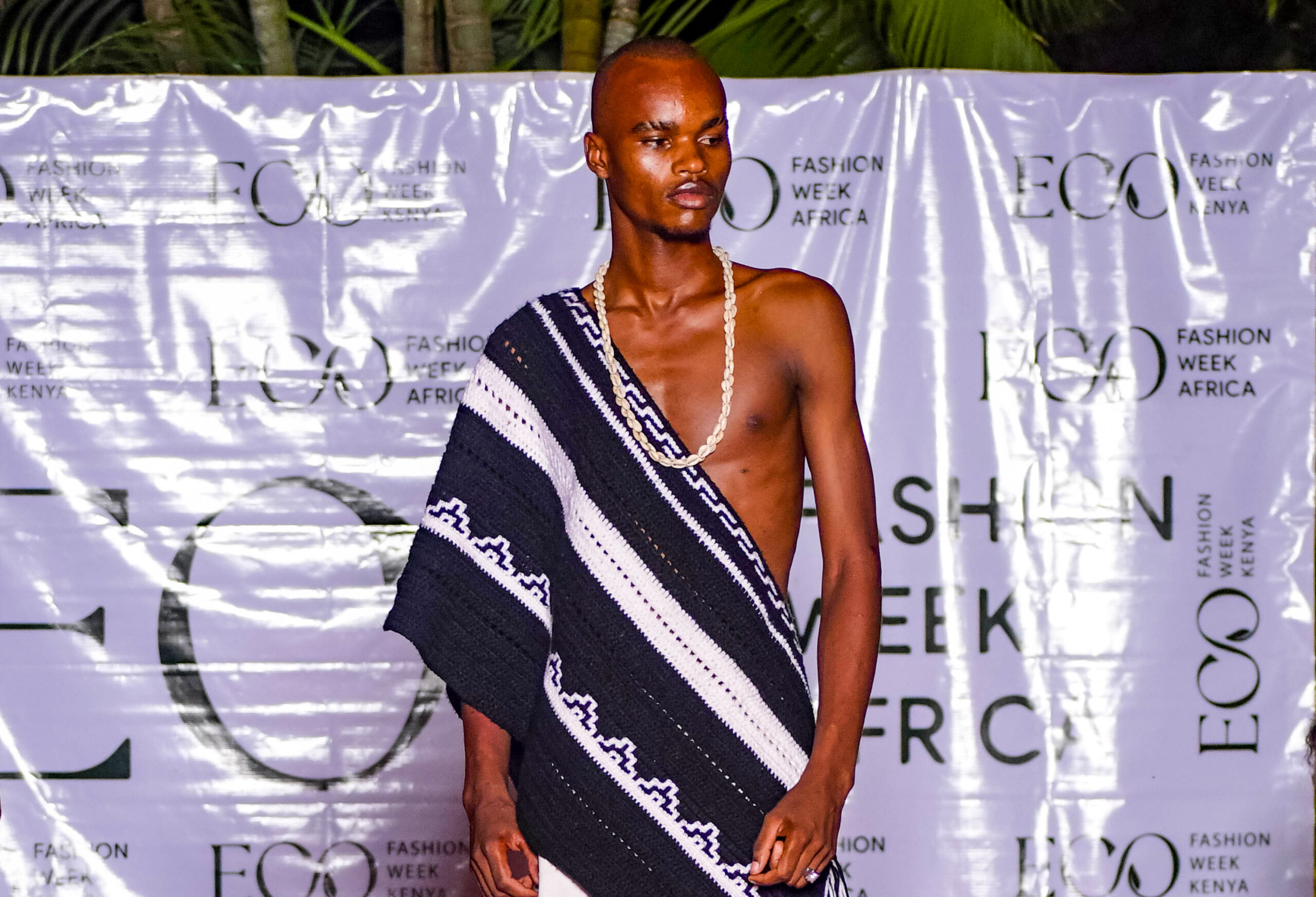
While the mental health impact was apparent, Dynamite Hooks faced an additional challenge: cost. Yarn was pricey, with each roll costing roughly Ksh60. Even a tiny piece of cloth could use six or more rolls, posing a substantial challenge for many.
But Triza and her team found a creative solution: upcycling old sweaters from the local thrift market.
“In Kilifi, it’s hot, so sweaters aren’t in demand. You can get one for just Ksh 50,” Triza explains. “If we unravel it carefully, we get enough yarn to make an entire dress. That means we spend less and reduce textile waste at the same time.”
Dynamite Hooks is making slow fashion mainstream. Its use of upcycling is consistent with a larger continental trend toward sustainable fashion. In Ghana, for example, the Kantamanto Market in Accra recycles over 25 million secondhand clothing every month through resale, repair, and upcycling. This informal system supports over 30,000 traders and contributes significantly to the reduction of textile waste while fostering circular fashion practices in West Africa.
This change not only made the craft cheaper, but it also fit nicely with their aim of encouraging sustainability. It became an integral element of their training, teaching new members how to acquire resources inexpensively and sustainably.
“We’re not just buying new yarn,” says Sumaya Apondi. “We’re reusing what’s already out there and saving the environment while we do it.”

The formalisation of dynamite hooks was a notable moment. In early 2024, the team was invited to teach 15 personnel at an EPZ facility in Kikambala, their largest opportunity yet. The timing was difficult; most of them were in their final year at Pwani University, juggling exams and the intensive three-week training.
“We had to divide roles,” Triza says. “Some of us handled training while others studied. It was exhausting, but we knew this was bigger than us.”
After finishing the EPZ training, they utilised the proceeds to officially register Dynamite Hooks as a business in May 2024. This milestone opened up additional possibilities, such as participating in events like Soko, where they could expose their items to a bigger audience.
Their choice to formalise reflects an emerging trend in Africa, where organised support for fashion businesses is gaining traction. According to UNESCO, small and medium-sized firms account for more than 90% of the continent’s fashion sector, emphasising the importance of grassroots entrepreneurs in both economic development and cultural preservation.
Dynamite Hooks also became the inaugural sponsor of Arts and Hearts, a larger platform they co-founded to bring together emerging artists working in sustainable crafts. It presently has over 20 active crocheters and over 50 girls in training.
“We’re building something that’s not just about profit,” Triza says. “It’s about creating long-term, meaningful work through art.”
Recognition followed their influence. In March 2024, Dynamite Hooks received a Tuza Award nomination in the Creatives. The accolade, organised by the Tuza Foundation, celebrates young changemakers who are making positive social impact across Kenya. A month later, they hosted their first major showcase event, Stitch Tides, which drew attention from designers, students, and mental health advocates.
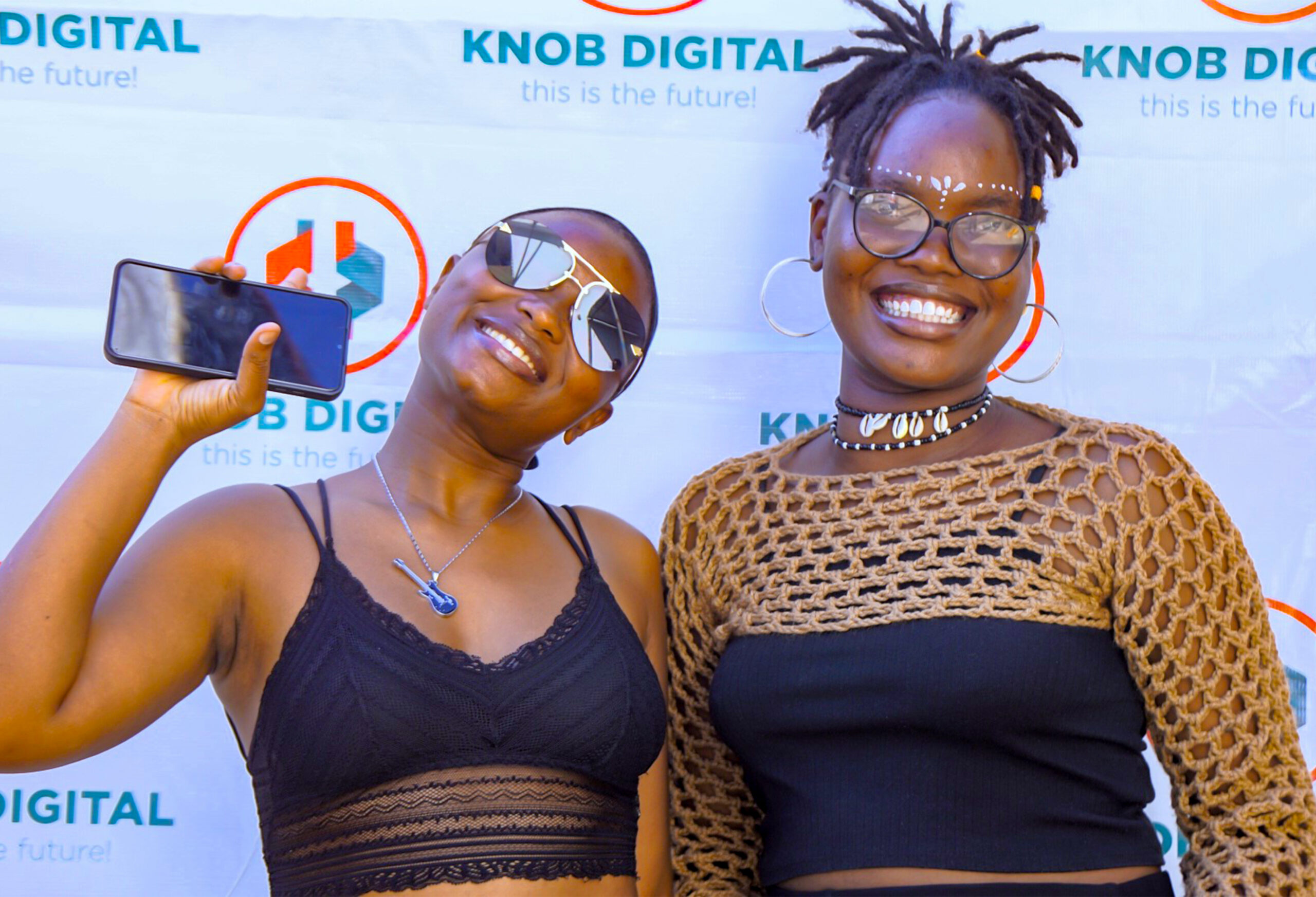
Triza was invited to speak at Eco Fashion Week Africa in April 2024, held across several cities in Kenya including Nairobi, Mombasa, Malindi, and Watamu. Organised by Sustainable Fashion Talks, the event promotes eco-conscious practices in fashion across the continent. During the event, Triza recounted her story and was named a sustainable fashion youth representative. Today, she oversees the platform’s youth engagement efforts, collaborating with other creatives from across the continent to create more environmentally conscious communities.
The movement is still developing. Dynamite Hooks now serves more than 70 girls—20 active members and 50 in training—and is expanding its reach. Triza’s next ambition is to construct a physical studio in Kilifi, where young women may learn, create, and earn money while crocheting.
Her dream is consistent with similar grassroots efforts across the continent. In Rwanda, for example, the Cesta Collective works with indigenous female craftsmen to create handcrafted basket bags. This initiative gives steady employment to almost 1,400 women, many of whom now earn four to five times the national average income, proving the efficacy of art and design as economic transformation tools.
She hopes that by creating a dedicated hub, she would be able to build the community, increase their effect, and inspire more people to embrace sustainable fashion as a means of healing and empowerment.
More than 10 million people in Africa rely on creative and cultural industries for income, demonstrating that crafts like crochet are more than just hobbies; they are engines of change.
“We’ve shown it’s possible,” she says. “Now, we want to expand and help more people do the same.”
***
Story Credit: Velma Pamela for Bird Story Agency


